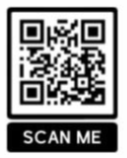Electricity costs in Abuja continue to rise, making it increasingly expensive for households and businesses to rely solely on the national grid. Power outages and unreliable supply further compound the problem, forcing many to depend on costly fuel-powered generators.
However, there is a sustainable and cost-effective solution: solar power. By harnessing the abundant sunlight available in Abuja, residents can significantly reduce their electricity bills and achieve energy independence.
This article explores how solar power can help cut energy costs and provide a reliable power source for homes and businesses in Abuja.

The High Cost of Electricity in Abuja
Electricity tariffs in Nigeria fluctuate due to factors such as fuel prices, inflation, and government policies. Many Abuja residents experience high energy bills, exacerbated by irregular supply that often necessitates alternative power sources like generators. Running a generator is not only expensive but also contributes to noise and air pollution. With solar power, households and businesses can cut down on these costs and enjoy an uninterrupted power supply.
How Solar Power Works
Solar power systems generate electricity by converting sunlight into electrical energy through photovoltaic (PV) panels. These panels capture solar radiation and convert it into direct current (DC), which is then transformed into alternating current (AC) by an inverter for home or business use. Excess energy generated can be stored in batteries for nighttime use or periods of low sunlight, ensuring a continuous power supply.
Ways Solar Power Reduces Electricity Bills
- Reduction in Grid Dependence
By generating electricity from solar panels, homeowners and businesses rely less on the national grid, leading to lower monthly electricity bills. The more solar power generated, the less energy needs to be purchased from electricity providers. - No Fuel Costs
Unlike generators that require petrol or diesel, solar panels operate solely on sunlight, which is free. This eliminates recurring fuel expenses and the hassle of fuel shortages. - Minimal Maintenance Costs
Solar power systems have low maintenance requirements. Regular cleaning and occasional servicing of inverters and batteries are usually sufficient to keep the system running efficiently. Compared to the high maintenance costs of generators, solar energy is a more economical option in the long run. - Battery Storage for Energy Independence
With solar battery storage, excess electricity generated during the day can be stored and used at night or during power outages. This reduces reliance on the grid and minimizes energy costs even further. - Government Incentives and Tax Benefits
In Nigeria, the government is promoting renewable energy adoption through various policies and incentives. While incentives may vary, some programs provide subsidies or tax relief for solar installations, making it an attractive investment.
Choosing the Right Solar System for Your Needs
To maximize cost savings, it’s essential to choose the right solar system based on your energy consumption. Here are some factors to consider:
- Energy Usage Assessment: Analyze your average monthly electricity consumption to determine the appropriate system size.
- Quality of Components: Invest in high-quality solar panels, inverters, and batteries to ensure durability and efficiency.
- Installation by Experts: Work with reputable solar companies in Abuja to ensure proper installation and system optimization.
- Grid-Tied vs. Off-Grid System: Decide whether you need a grid-tied system (connected to the national grid) or an off-grid system (completely independent).
Return on Investment (ROI) for Solar Power
While the initial cost of installing solar panels may seem high, the long-term savings outweigh the investment. On average, a well-installed solar system can pay for itself within 3-5 years. After this period, users enjoy virtually free electricity for decades, as solar panels can last up to 25 years or more.
Real-Life Savings from Solar Power in Abuja
Many households and businesses in Abuja have successfully reduced their electricity bills through solar power. For example:
- A family that previously spent ₦50,000 monthly on electricity and generator fuel now pays only ₦10,000 after switching to a solar system.
- A small business that installed a hybrid solar system saw a 60% reduction in energy expenses while enjoying uninterrupted power supply.
Conclusion
Solar power presents a reliable and cost-effective alternative to Abuja’s expensive and unreliable electricity supply. By reducing dependence on the national grid, eliminating fuel costs, and minimizing maintenance expenses, solar energy can significantly lower electricity bills for homes and businesses. Investing in solar power is not only financially beneficial but also an environmentally friendly choice that supports sustainable energy use. Now is the best time to switch to solar and enjoy long-term savings and energy security in Abuja.



